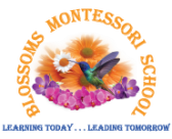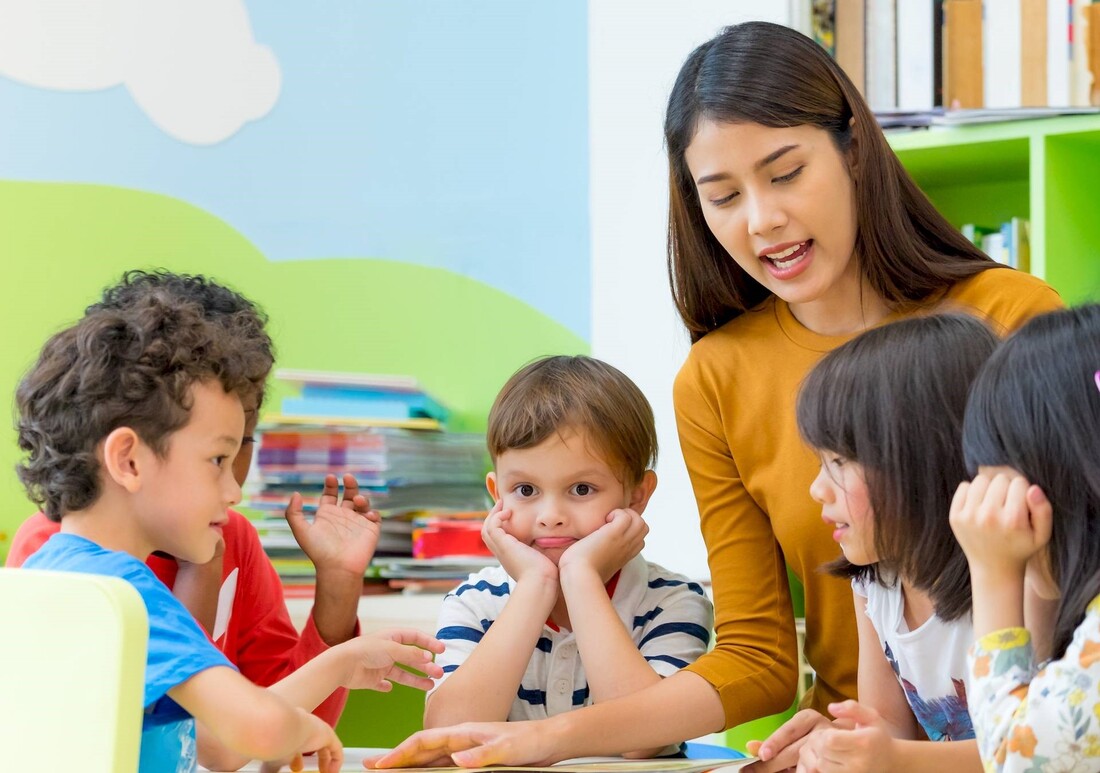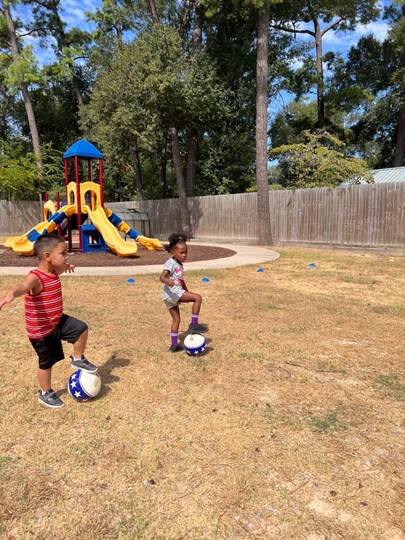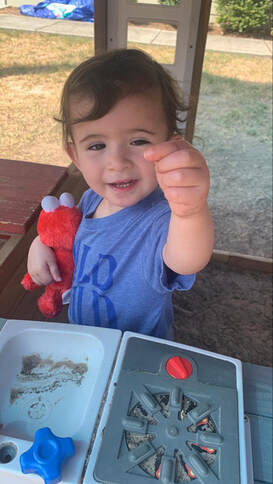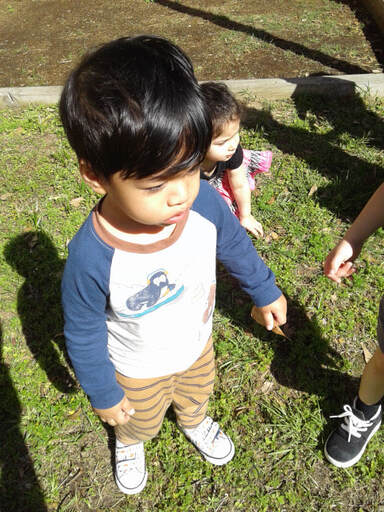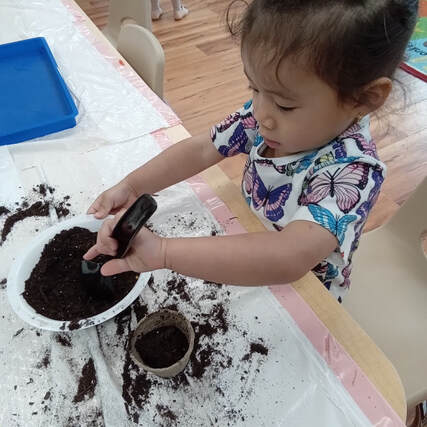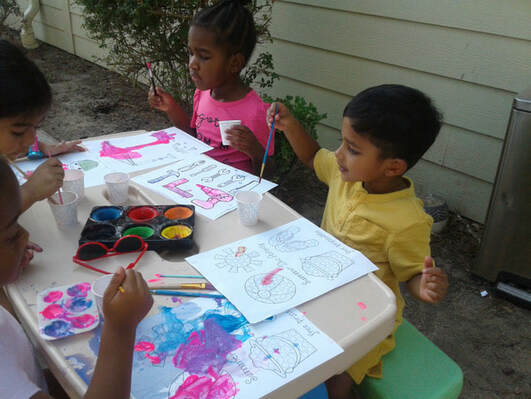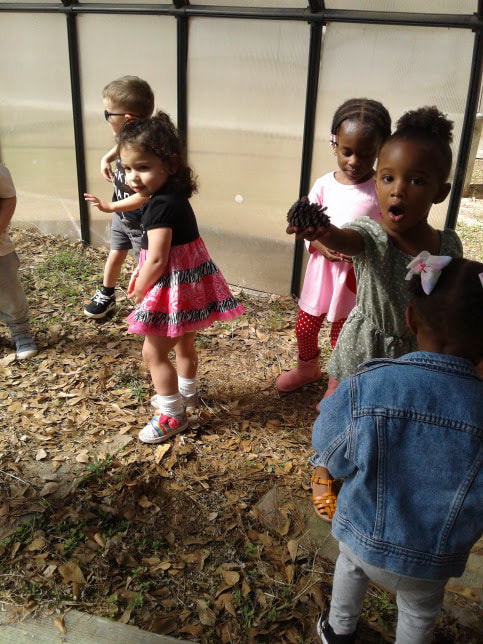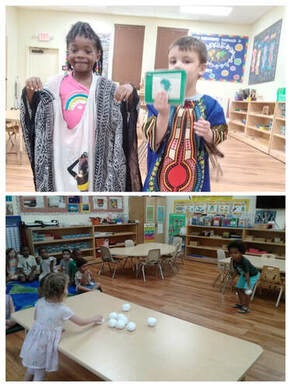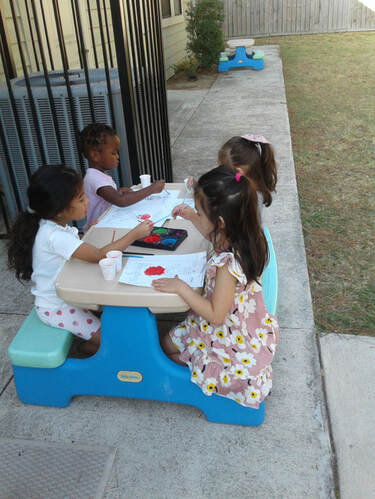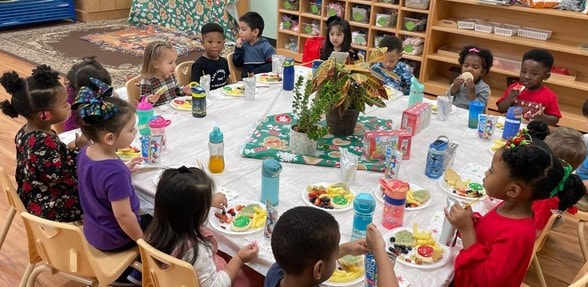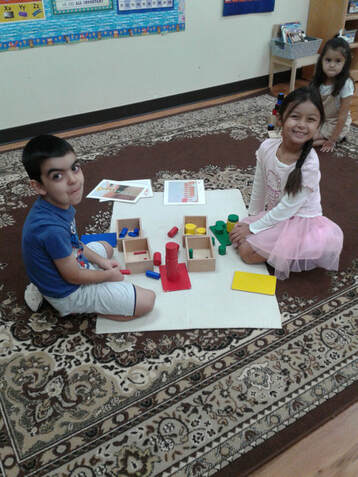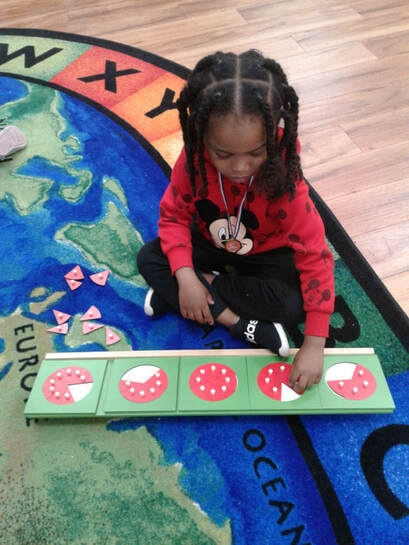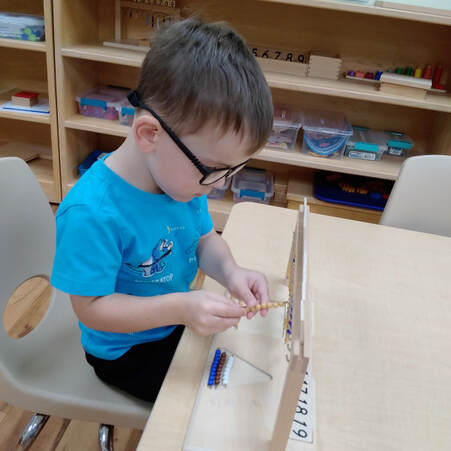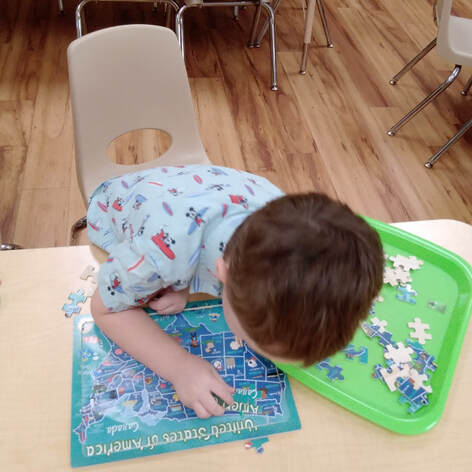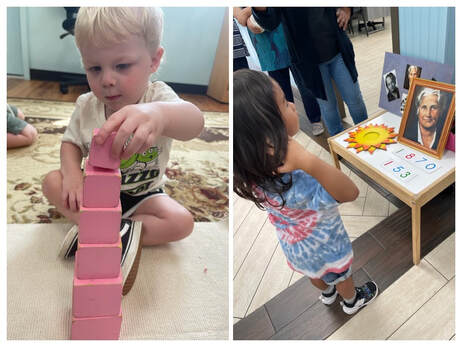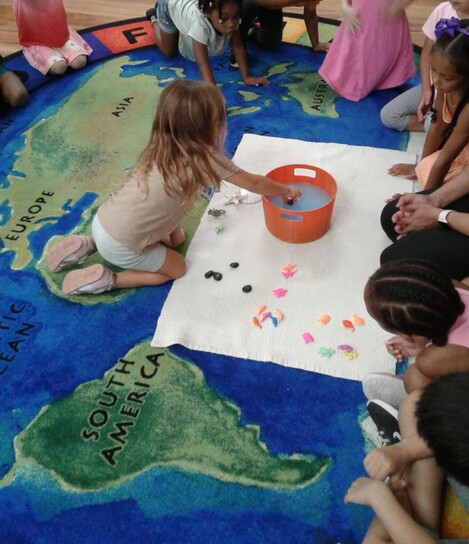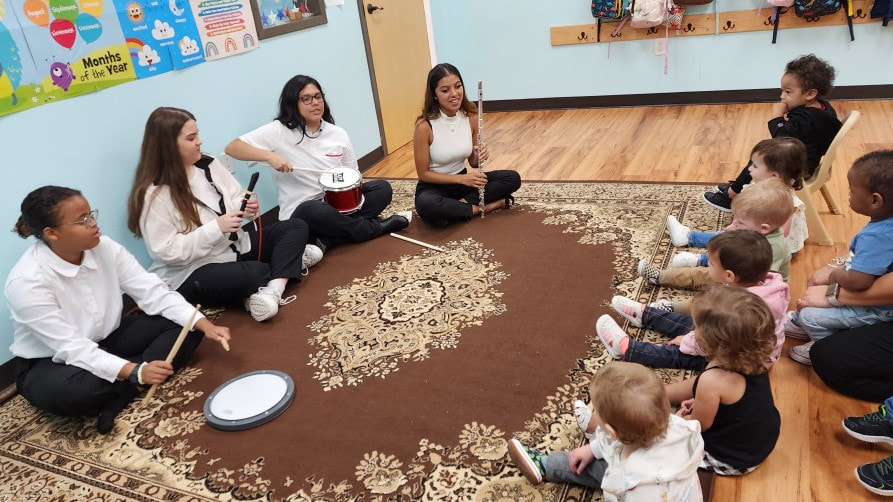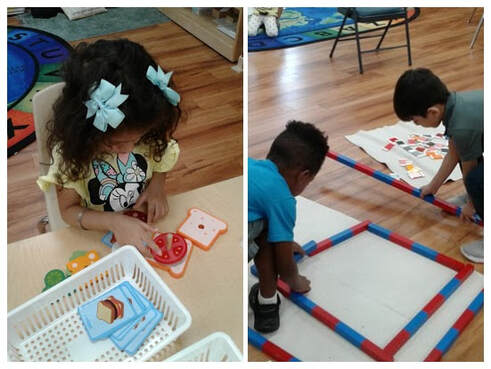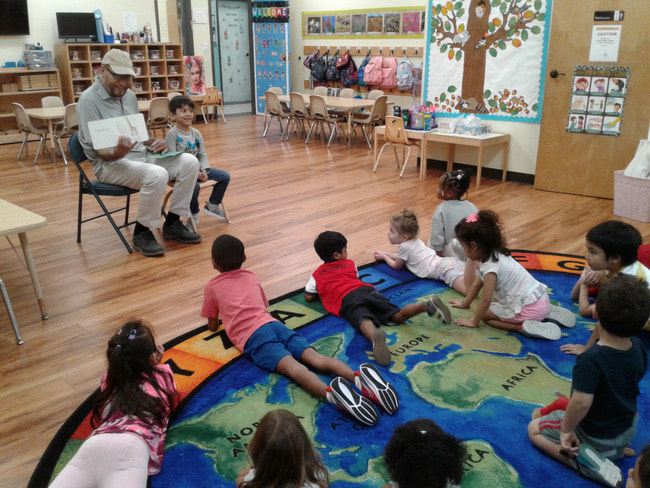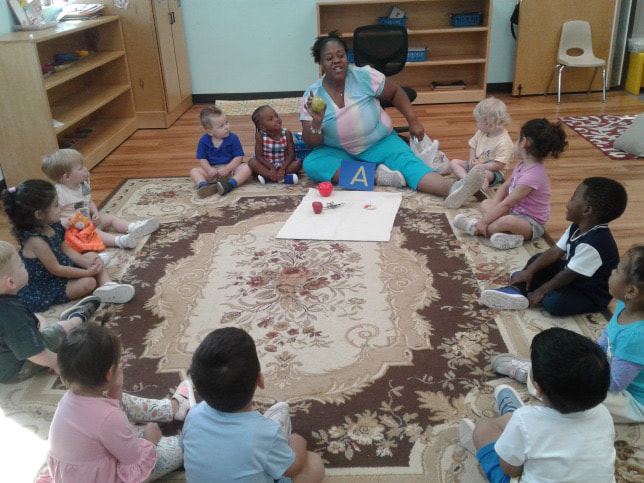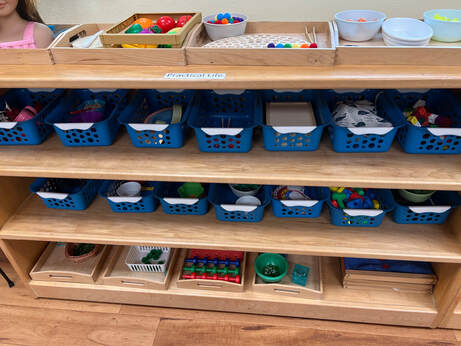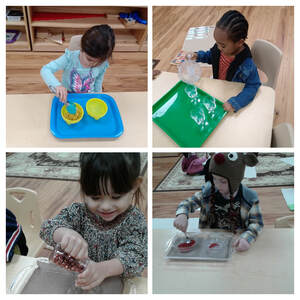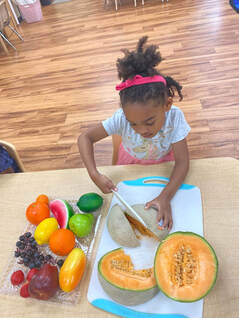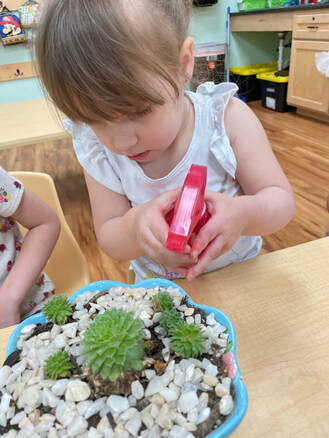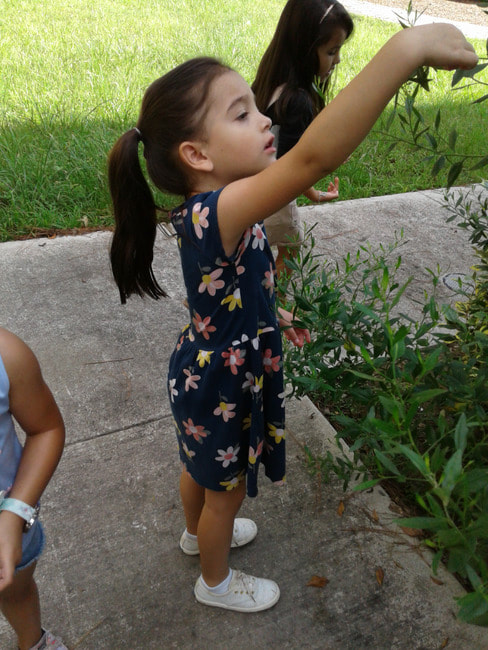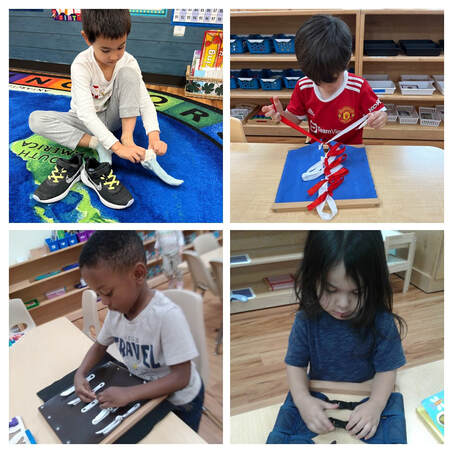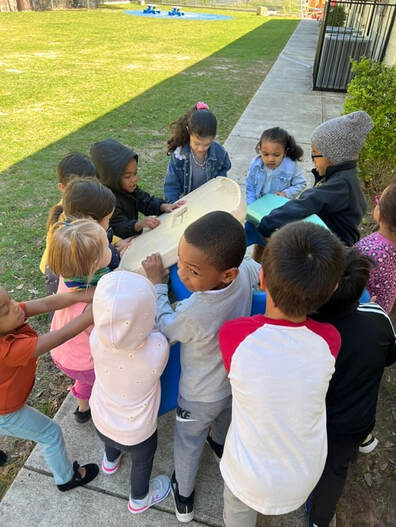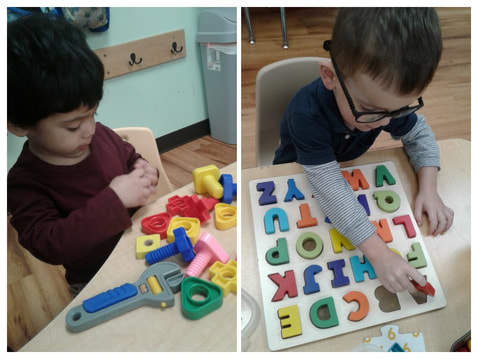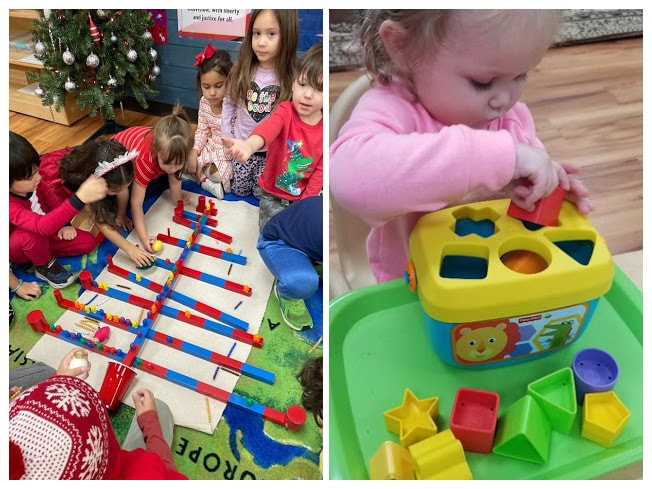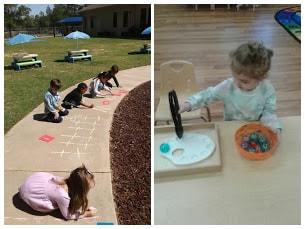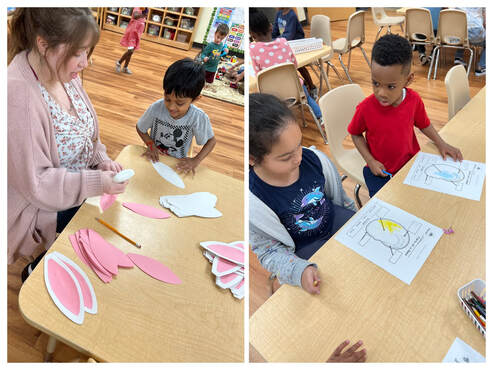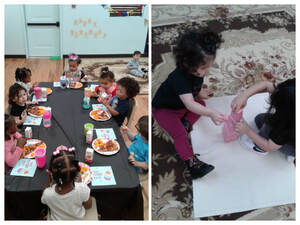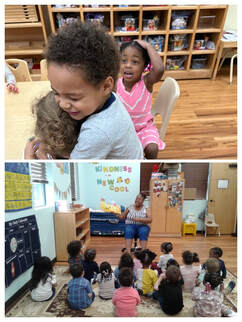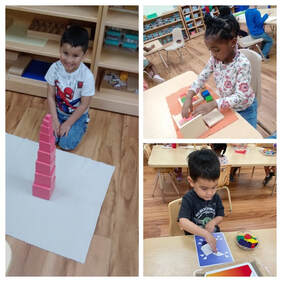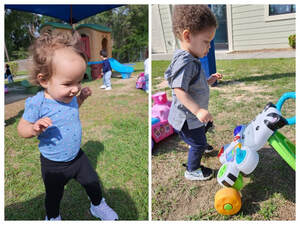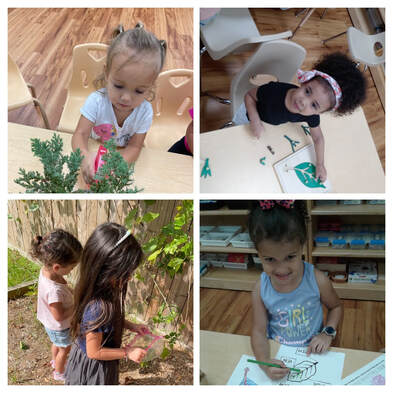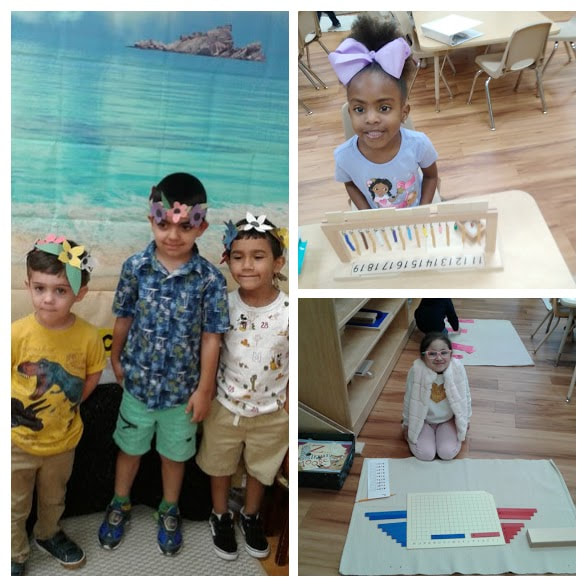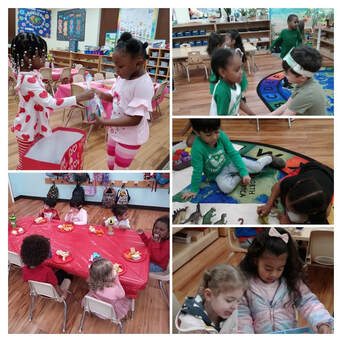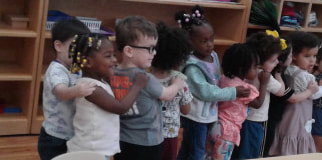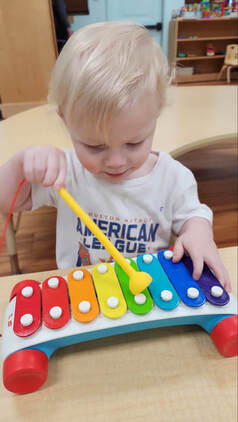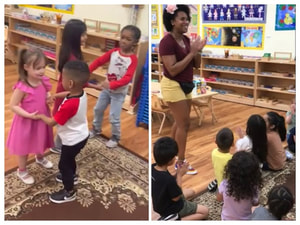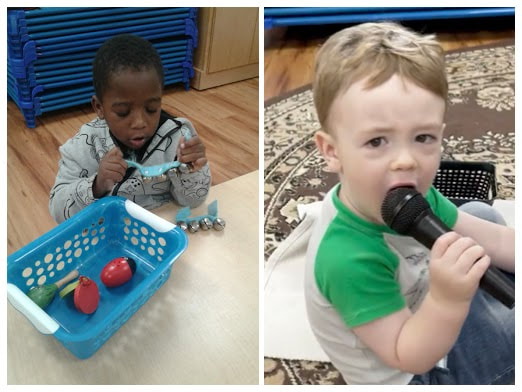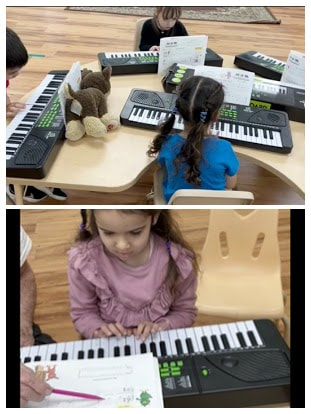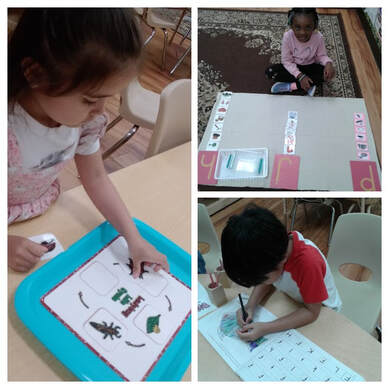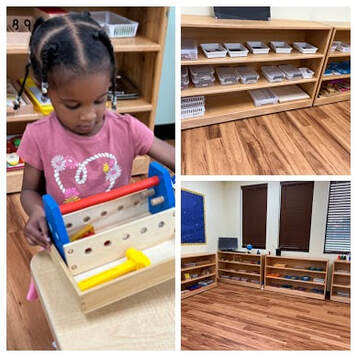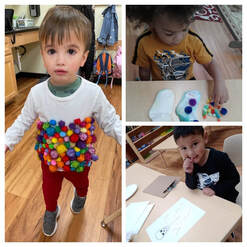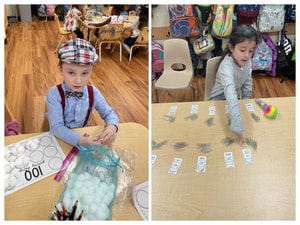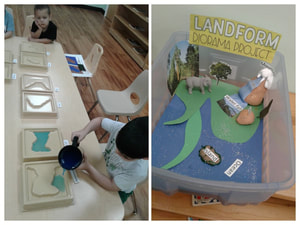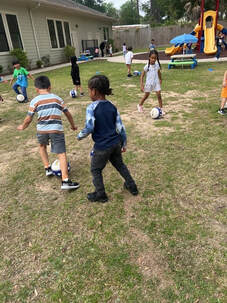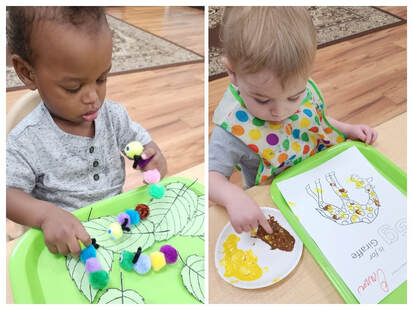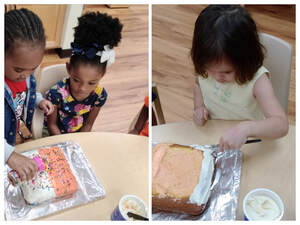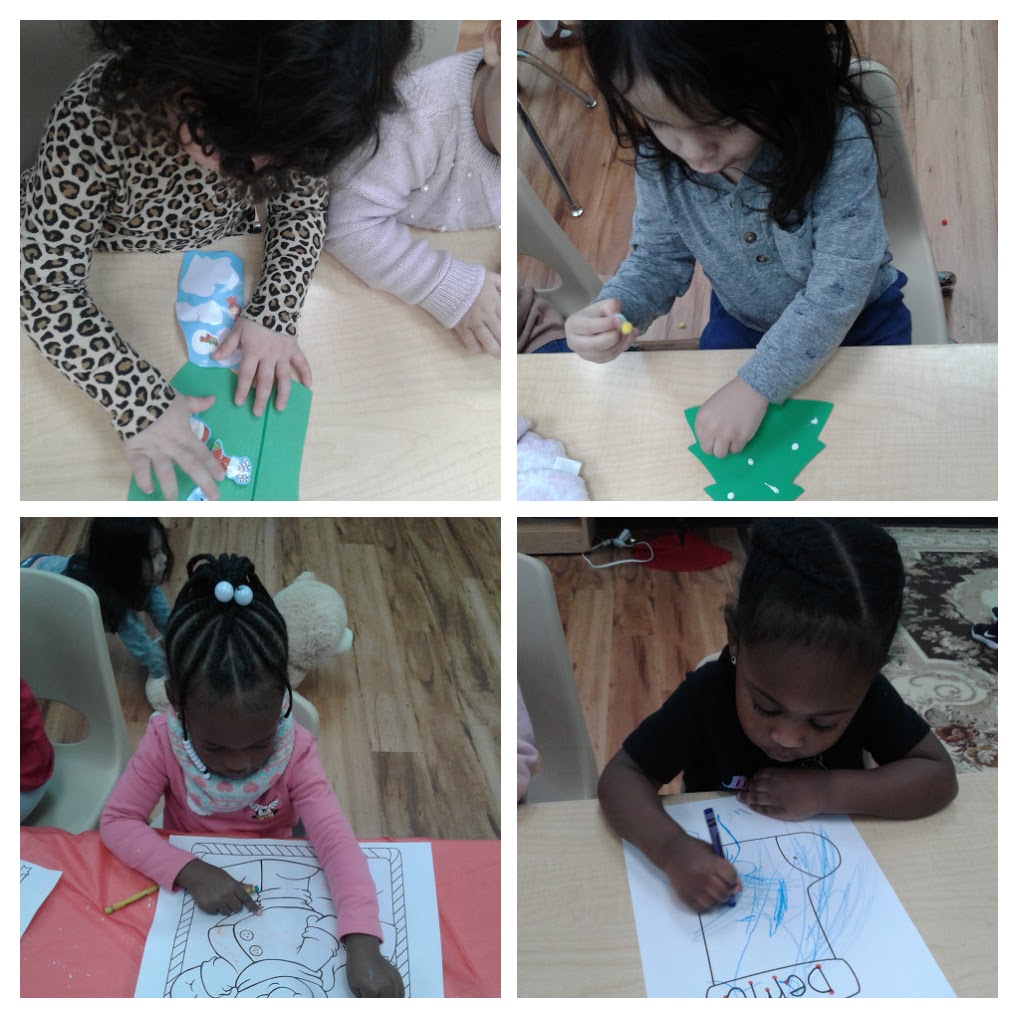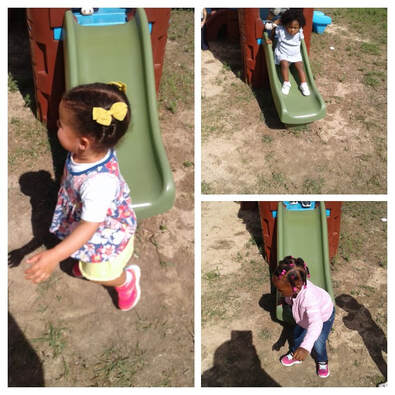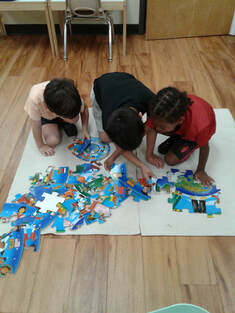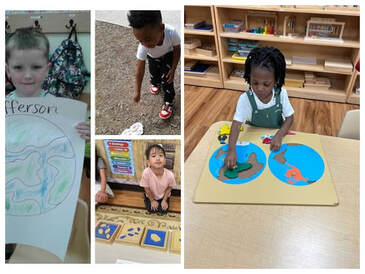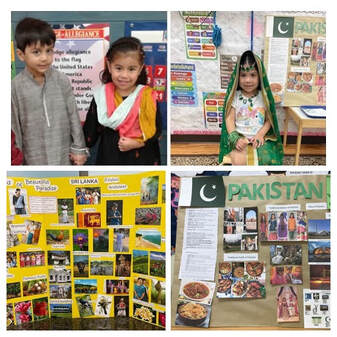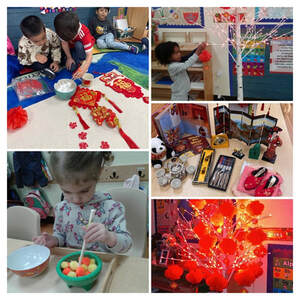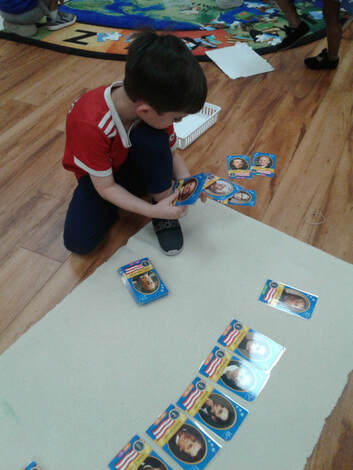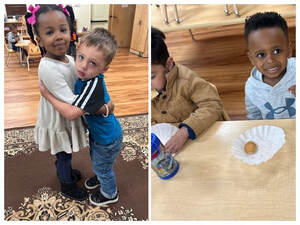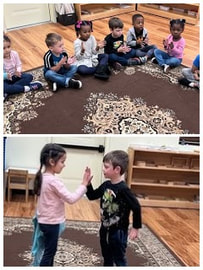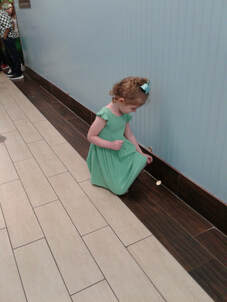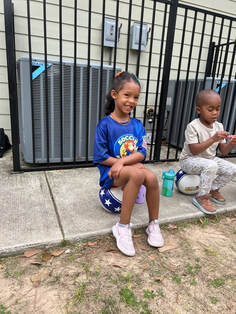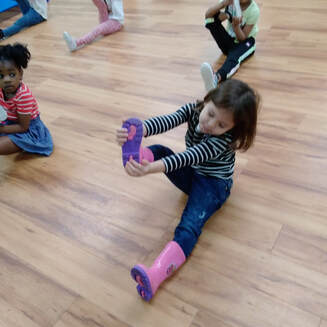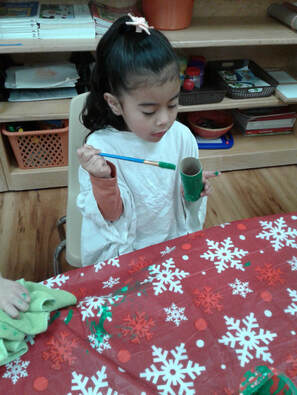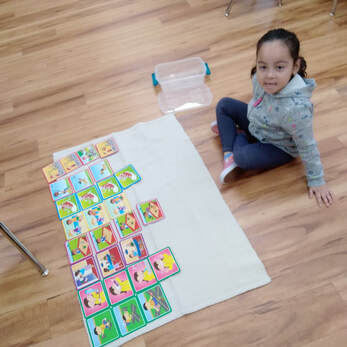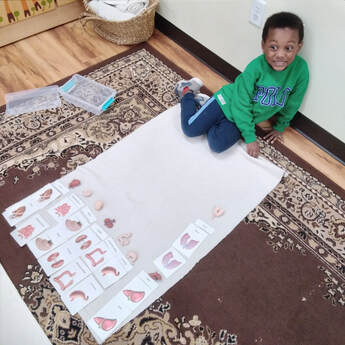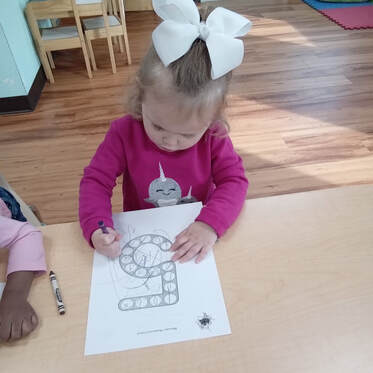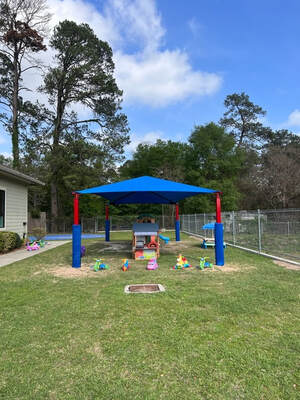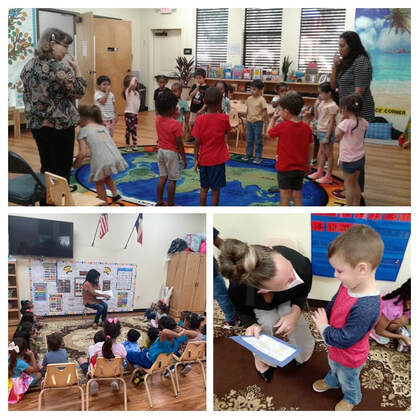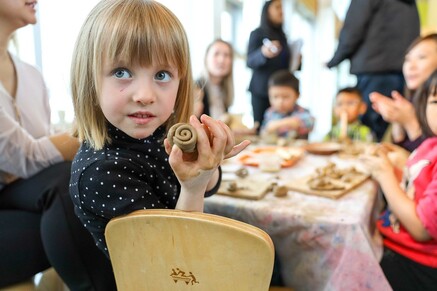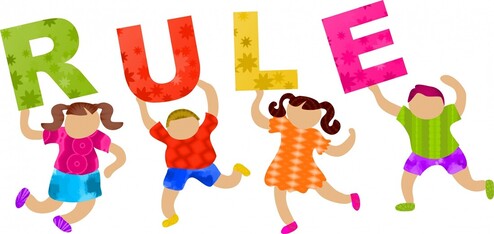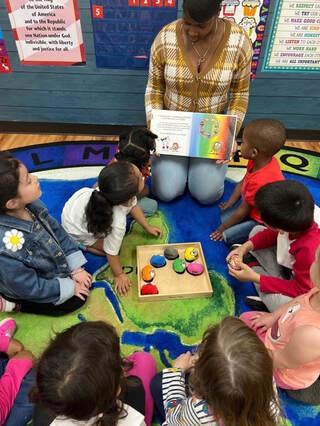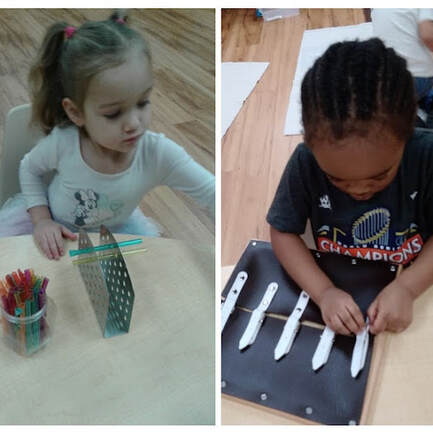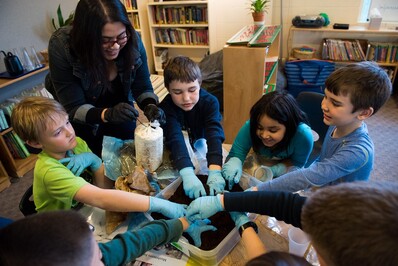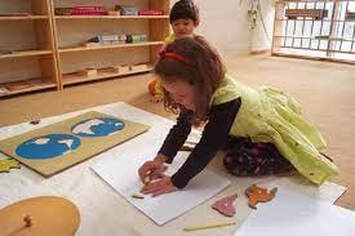|
Welcome to the official blog of Blossoms Montessori School, where innovation meets education in a unique and transformative way. In today’s fast-paced world, traditional education models may not always suffice in nurturing the diverse talents and potential of every child. That is where Blossoms Montessori steps in, offering a distinctive approach that prioritizes individualized learning, holistic development and a nurturing environment. What Sets Us Apart At Blossoms Montessori, we believe that every child is unique, with their own set of strengths, interests, and learning styles. Our approach is centered around the Montessori method, which emphasizes self-directed activity, hands-on learning, and collaborative play. Unlike traditional schooling, where children are often passive recipients of information, our classrooms are dynamic environments where students are actively engaged with their surroundings, guided by trained Montessori educators. Individualized Learning One of the cornerstones of our approach is individualized learning. Rather than following a standardized curriculum, our teachers tailor learning experiences to meet the needs of each child. Through observation and assessment, educators identify a child’s interests, strengths, and areas for growth, allowing them to create personalized learning plans that foster intellectual curiosity and a love for learning. Hands-On Exploration At Blossoms Montessori, we believe that children learn best through hands-on exploration and discovery. Our classrooms are carefully designed to provide a rich and stimulating environment filled with educational materials that encourage independent exploration and problem-solving. From practical life activities to sensorial experiences and academic lessons, every aspect of our curriculum is designed to ignite children’s curiosity and passion for learning. Holistic Development We understand that education goes beyond academics. That’s why we place equal emphasis on the social, emotional, and physical development of our students. Through mixed-age classrooms and opportunities for peer collaboration, children learn valuable life skills such as communication, empathy, and teamwork. Additionally, our outdoor learning spaces and enrichment programs encourage physical activity, creativity, and a deep connection with nature. A Nurturing Environment
Above all, Blossoms Montessori is a place where every child feels safe, valued, and supported. Our dedicated educators provide a warm and nurturing environment where children are free to be themselves and pursue their passions. Whether it's a listening ear, a comforting hug, or words of encouragement, our staff is committed to nurturing the child and helping them thrive both academically and emotionally.
0 Comments
In the bustling world of education, where every parent seeks the best for their child, finding a nurturing environment that fosters both learning and personal growth is paramount. At Blossoms Montessori School, we believe in more than just teaching; we believe in empowering young minds to flourish and thrive. Let’s take a journey into what makes our daycare school a haven for your child’s development. A Holistic Approach to Learning At Blossom’s, education extends beyond books. We embrace a holistic approach that nurtures the mind, body and soul of every child. From stimulating academic curriculum to creative arts and emotional intelligence programs, we provide a well-rounded experience that encourages exploration and self-discovery. Nurturing Individuality: Every child is unique, with their own set of talents, interests, and challenges. Our educators understand this diversity and tailor their approach to suit each child’s needs. By celebrating individuality and offering personalized attention, we empower children to embrace their strengths and overcome obstacles with confidence. Building Resilience and Confidence: Life is full of challenges; we believe in equipping children with the tools to face them head-on. Through our supportive environment and encouragement, we instill resilience and confidence in our students. Whether it’s tackling a difficult Math problem or expressing themselves through art, we encourage risk-taking and perseverance. Parent Partnership:
We recognize the importance of a strong partnership between educators and parents. Our door is always open for communication, feedback and collaboration. We understand entrusting your child to our care is a significant decision, and we strive to ensure that every parent feels informed, involved and supported every step of the way. At Blossoms Montessori, we believe in laying the foundation for a lifetime of learning from the earliest stages of development. As educators, we recognize the pivotal role of childcare or daycare in shaping our children’s formative years. That’s why we’ve crafted an environment where curiosity thrives and opportunities abound, setting the stage for an enriching educational journey. Nestled in a serene environment. Blossoms Montessori offers more than just a daycare facility — it’s a haven for a holistic education. We embrace the renowned Montessori approach ensuring that learning extends beyond traditional classroom boundaries. Here, every interaction, every exploration is a stepping stone towards unlocking a child’s potential.
At Blossoms Montessori, we understand that each child is unique, with their own pace and style of learning. That’s why our classrooms are thoughtfully arranged with age-appropriate materials, fostering independence and igniting curiosity. From sensorial activities to practical life exercises, every element is carefully curated to stimulate cognitive, social and emotional growth. Education goes beyond textbooks and tests — it’s about instilling values that shape compassionate, empathetic individuals. At Blossoms Montessori, we emphasize community engagement, cultural appreciation, and environmental stewardship from an early age. Through projects, celebrations, and nature-based activities, children learn to embrace diversity, respect others, and care for the world around them. As parents, there’s nothing more fulfilling than seeing our children flourish in a nurturing environment. The dedication of our teachers, the warmth of our community, and the infectious enthusiasm of the children create a vibrant tapestry of learning that leaves a lasting impact on our hearts. In a world where fostering independence in children is increasingly valued, the Montessori method stands out as a beacon of holistic education. At Blossoms, we embrace this approach wholeheartedly, nurturing young minds to become confident, self-sufficient individuals through our immersive Montessori experience. At the heart of Montessori philosophy lies the belief in the innate ability of every child to direct their own learning. Within our classrooms at Blossoms, this principle is manifested in every activity and interaction. Through carefully curated environments and materials designed to stimulate curiosity and exploration, children are empowered to follow their interests at their own pace. Whether it’s learning to tie shoelaces, pour water, or solve mathematical problems, every task is an opportunity for growth and self-discovery. One of the fundamental pillars of Montessori education is the emphasis on hands-on learning. By encouraging children to engage with real-life tasks and materials, we instill a sense of practicality and purpose in their education. From sensorial activities that develop fine motor skills to cultural studies that foster a global perspective, our curriculum is rich and diverse, catering to the holistic development of each child. Central to the Montessori experience is the role of the teacher as a guide and facilitator. At Blossoms, our educators are not just instructors but mentors who observe, support, and encourage each child’s unique journey. By providing a nurturing and respectful environment, we cultivate a sense of belonging and community where children feel safe to explore and express themselves freely.
In a world dominated by screens and digital distractions, the Montessori daycare approach stands out for its commitment to fostering a deep connection between children and the natural world. At the heart of this philosophy lies the belief that nature is not just a backdrop but a vital teacher. Let’s explore outdoor and nature-based education's significance in the Montessori Preschool curriculum. The Natural Classroom: Beyond Indoors One of the hallmarks of Montessori daycare education is the recognition that learning doesn't happen only within the confines of a traditional classroom. Nature becomes an expansive, living laboratory for exploration. Outdoors offer sensory-rich experiences that engage children's senses and spark their curiosity. Benefits of Nature-Based Learning: 1. Physical Development: Outdoor play enhances motor skills, coordination, and fitness. Children strengthen agility through tree interactions, by balancing on varied landscapes, and immersive play. 2. Emotional Well-being: Nature calms, reducing stress. Outdoor exploration nurtures wonder, resilience, and a positive outlook. 3. Cognitive Growth: Nature-based activities stimulate critical thinking, problem-solving, and creativity. Observing patterns in leaves, rocks, and experimenting with natural elements aids cognitive growth. 4. Environmental Awareness: Outdoor time fosters early environmental stewardship, teaching about ecosystems, biodiversity, and the importance of caring for the planet. 5. Social Skills: Nature play encourages collaboration, communication, and negotiation. Building, crafting, and group games teach teamwork and respect for ideas. Blossoms Preschool Montessori Embraces Nature-Based Learning 1. Nature Walks: Regular nature walks expose children to the wonders of the natural world. Children are encouraged to observe plants, animals, and natural phenomena. 2. Gardening: Cultivating gardens imparts plant knowledge, plant life cycles, nutrition, responsibility, and life lessons. They learn to care for living things. 3. Nature Art: Using leaves, sticks, and rocks, children create art, fostering creativity and environmental connection. 4. Seasonal Celebrations: Seasonal events are organized that connect children to nature's rhythms – from fall harvest festivals to spring planting days. Fostering Nature Explorers
In Preschool Montessori, nature isn't just play; it's learning and inspiration. Integrating nature into the curriculum creates a strong bond with the environment, nurturing lifelong appreciation. Through outdoor exploration, children become not only learners but also stewards of the Earth, equipped with the skills and knowledge to make a positive impact on the planet. In an increasingly interconnected world, fostering cultural diversity and global understanding is paramount for the future generations. Blossoms Montessori Preschool education stands as a beacon of this philosophy, offering a unique approach that enriches young minds with a global perspective. Through its innovative methods, Montessori daycares expose children to a myriad of cultures, languages, and traditions, cultivating open-mindedness and empathy. Let’s explore how Montessori daycare education promotes cultural diversity, elucidate its benefits, and emphasize the importance of nurturing global citizens. Promoting Cultural Diversity: Montessori Preschool classrooms are carefully designed to reflect a diverse world, incorporating materials, activities, and experiences from various cultures. From learning about different flags and continents to exploring traditional clothing and foods, children are immersed in a multi-faceted learning environment. This exposure not only sparks curiosity but also nurtures a deep appreciation for different ways of life. Benefits of a Global Perspective: Montessori Preschool education's emphasis on cultural diversity offers numerous benefits. Firstly, it cultivates an early sense of respect and understanding for others, helping children develop into empathetic and compassionate individuals. Secondly, exposure to different languages fosters enhanced communication skills and cognitive development. Additionally, the global perspective nurtured in Montessori Preschool environments prepares children for an interconnected world, equipping them with essential skills to navigate diverse societies. Cultivating Future Global Citizens: Montessori Preschool education equips children with the tools to become active participants in a global society. By celebrating various cultural celebrations, traditions, and festivals, children develop a broader worldview that extends beyond their immediate surroundings. This exposure nurtures a sense of belonging to a global community, promoting unity through diversity. In a world characterized by cultural richness and globalization, Montessori Preschool education plays a pivotal role in shaping young minds into global citizens. By exposing children to different cultures, languages, and traditions, Blossoms Montessori Preschool instills a profound respect for diversity, fosters open-mindedness, and prepares them for a future where cross-cultural understanding is essential. As we aspire to create a harmonious world, embracing Montessori's approach to cultural diversity paves the way for a brighter, more inclusive future.
As parents and educators seek holistic and effective educational approaches, Montessori Preschool principles have emerged as a guiding light beyond the preschool years, seamlessly preparing children for the challenges of elementary school and beyond. The Montessori Preschool philosophy, rooted in fostering independence, exploration, and self-directed learning, extends its influence into elementary education with remarkable benefits. The purpose of transitioning to elementary education with a Montessori daycare foundation is to nurture a lifelong love for learning and equip children with essential skills that extend far beyond academics. Montessori Preschool principles encourage critical thinking, problem-solving, collaboration, and adaptability, traits that are becoming increasingly vital in our rapidly changing world. Benefits: 1. Holistic Development: Montessori Preschool education emphasizes the development of the whole child—cognitive, social, emotional, and physical—laying a strong foundation for well-rounded growth. 2. Intrinsic Motivation: By allowing children to choose their activities and set their pace, Montessori Preschool education instills a sense of intrinsic motivation, making them eager learners who take charge of their education. 3. Individualized Learning: Montessori daycare classrooms cater to individual learning styles and paces, ensuring that each child's unique strengths and challenges are acknowledged and addressed. 4. Global Citizens: Montessori's focus on cultural awareness and respect prepares children to become compassionate, empathetic global citizens, appreciating diverse perspectives.
Transitioning to elementary education with a Montessori daycare background offers an enriching and empowering journey. The principles that guide Montessori Preschool education—freedom within limits, self-discipline, and respect for oneself, others, and the environment—create a fertile ground for young minds to flourish. By seamlessly integrating Montessori principles beyond preschool, we prepare our children not only for academic success but for a life enriched by curiosity, creativity, and a deep understanding of the world around them. Blossoms Montessori’s educational philosophy fosters not just competent students, but compassionate and capable individuals who are ready to contribute meaningfully to society. In an era characterized by rapid technological advancement, the Montessori Preschool educational philosophy offers a refreshing perspective on technology use and screen time for children. Founded by Dr. Maria Montessori, this approach emphasizes hands-on learning, individualized instruction, and respect for a child's innate curiosity. In this digital age, the Montessori daycare stance on technology remains relevant, encouraging us to find a harmonious balance between the virtual and the tangible. The purpose of embracing Montessori daycare principles in the context of technology is to foster holistic development. Rather than relying solely on screens, Montessori Preschool education values direct interaction with the environment. This approach encourages creativity, problem-solving, and sensory engagement, which are critical for a child's cognitive, emotional, and social growth. Benefits: By adhering to a Montessori-inspired balanced approach, children can benefit in several ways. They develop self-regulation as they learn to manage their time between real-world exploration and screen-based activities. Screen time becomes purposeful, integrated with hands-on experiences, enhancing learning rather than replacing it. Additionally, children cultivate strong interpersonal skills, crucial for building meaningful relationships. Incorporating Montessori daycare principles into the digital age doesn't mean shunning technology entirely. Instead, it encourages thoughtful, intentional use that complements hands-on learning. Striking this balance equips children with the skills needed to navigate the complexities of the modern world while nurturing their natural curiosity and love for tangible experiences. As we look to the future, the Blossom Montessori daycare’s approach serves as a guiding light, reminding us that a harmonious relationship with technology can indeed coexist with the essence of genuine, holistic education.
The Montessori Preschool educational approach has garnered attention for its child-centered philosophy that nurtures independence and creativity. A crucial but sometimes overlooked aspect of this methodology is the dynamic between parents and teachers. Establishing a strong parent-teacher partnership can significantly enhance a child's Montessori daycare journey, leading to holistic development and academic success. Purpose of the Partnership The purpose of the parent-teacher partnership in Montessori Preschool education goes beyond conventional communication. It aims to create a unified support system that nurtures a child's growth, both at home and in the classroom. By sharing insights into a child's learning style, preferences, and progress, parents and teachers can tailor their approaches to maximize the child's potential. Benefits of Active Engagement Active parental involvement offers several benefits. It provides teachers with valuable insights into a child's life outside the classroom, enabling them to personalize instruction. Parents, armed with a deeper understanding of Montessori daycare principles, can reinforce concepts at home, creating a seamless learning experience. Moreover, a collaborative partnership instills a sense of security in children, knowing that their caregivers and educators are working together to support them. Effective Collaboration Strategies 1. Open Communication: Regularly communicate with teachers, sharing observations and concerns about your child's progress. 2. Home-Environment Alignment: Align your home environment with Montessori daycare principles, fostering independence and exploration. 3. Attending Meetings: Participate in Montessori Preschool meetings to better understand the methodology and apply it effectively at home. 4. Respectful Listening: Listen to teachers' insights and suggestions, valuing their expertise as partners in your child's education. The parent-teacher partnership in Montessori Preschool education transcends traditional involvement. It creates a synergy that empowers children to thrive academically, socially, and emotionally. Teachers at Blossoms Montessori School are dedicated to partnering with parents to unleash the complete potential of each child. Active engagement in their Montessori journey empowers parents to maximize this exceptional education. Remember, a united effort between parents and teachers paves the way for a well-rounded, confident, and independent child.
Math and language are important. But so is learning how to dress up in the morning and doing household chores. In real life, people have to cope with everyday home activities. It’s best for children to start learning practical skills while they are still young. Along with academic pursuits, our Montessori preschool teaches children the value of practical life activities. What Are Practical Life Activities? Dr. Maria Montessori noticed that children prefer to do chores with adults rather than play with their toys. That’s why practical life activities are among the first lessons children will learn at Montessori. Our Montessori daycare classroom at Blossoms Montessori School doesn’t look like a traditional one. There are no armchairs or desks that are perfectly lined up and facing the front. There are learning materials all over with large tables, chairs, and a large classroom to give children as much space as they need to learn, especially when it comes to real-life activities. Practical life activities aim to make children independent. There are four basic practical life lessons: preliminary exercises, care for the environment, care for the person, as well as grace and courtesy. Preliminary Exercises At Montessori childcare, students are encouraged to learn basic activities that hone their fine motor skills for more challenging activities. Among the exercises are sorting through objects and stringing items. They are also taught to keep their things after use. Every day, Blossoms prepares healthy snacks for children. As part of their lessons, they are taught to prepare their snacks by properly spooning food and pouring drinks. Care for the Environment Caring for the natural environment starts with caring for your surroundings. Children will learn the importance of keeping their environment clean. Activities include sweeping and dusting the classroom. Children are also encouraged to perform common household chores such as preparing their food, washing dirty dishes, and drying them after. Care for the Person Montessori aims to make children more independent. At a young age, they are taught to dress properly and tie their shoelaces. Children also learn to wash their hands regularly, especially after activities and before eating. They also receive lessons on nutrition. Grace and Courtesy Learning good manners prepares children for social settings. They are taught polite communication skills, table setting and manners, and basic considerate activities, such as walking slowly, moving furniture silently, and closing the door properly. At Blossoms Montessori School, your children have the opportunity to not just engage in intellectual endeavors. They are also taught practical everyday skills that will serve them well and support their holistic development.
What is the Montessori preschool philosophy? It’s about rigorous and self-motivated growth for children in all areas of their development– social and emotional, language and communication, movement and physical development, and cognitive. Montessori aims to nurture a child’s desire for knowledge, respect, and understanding. Nurturing a child’s quench for learning isn’t about spoon-feeding or dictating their lessons. It’s about guiding them but giving them the independence to pick what to learn and the pace of doing so. Let’s look at the developmental areas and how Montessori education encourages children to achieve the necessary skills for growth. Social and Emotional In traditional classrooms, students are separated by grade level, usually according to age. There is a sense of community in Montessori childcare because students of different ages share the same classroom for two to three years. Ages usually differ by two to three years. The Montessori method focuses on independence and practical studies rather than just moving on to the next grade level. Because children stay with the same group for at least two years, they will develop a kinship and build relationships. They learn social and emotional skills through their shared space and materials. They also learn camaraderie and teamwork during collaborative play. Language and Communication Every day is a lesson in language and communication. In Montessori, there is an added benefit of learning grace and courtesy. Communication skills are necessary for achieving grace for yourself and courtesy to other people. Knowing how to talk with respect and politeness is vital to the growth and development of personal relationships. Movement and Physical Development Movement is crucial in the daily life of every Montessori student. For one, they have the freedom to choose the materials they work on for the day, which involves going to and from the shelf to obtain them. Two, sensorial learning entails a lot of physical activities as children are educated through experience. Three, music is also a big part of the curriculum, as is dancing. Play is also integral in Montessori, with children enjoying both free and collaborative play. Cognitive Lastly, students learn something new daily, from math to science and nature, botany to cultural studies, and more. But the best part is that children learn at their own pace. They are not forced to understand lessons they are not ready to; hence, they are not pressured or stressed at school. Visit Blossoms Montessori School in Spring, Texas, to check out the facility and learn more about Montessori daycare.
The core concept of grace and courtesy is respect for oneself and others. But its impact on life is so much more than that. Grace and courtesy allow us to be sensitive to the needs of others and well-liked members of society. This is why Blossoms Montessori School considers grace and courtesy as indispensable aspects of our Montessori preschool curriculum. What Are Grace and Courtesy? Though they aren’t focus areas of many traditional schools, grace and courtesy are innate in Montessori childcare. Grace is defined as self-awareness and the ability to conduct oneself with dignity and refinement. Courtesy, on the other hand, involves showing respect and valuing other people’s needs. The two go hand in hand. When you show respect and act with grace, it is much easier to form relationships, get ahead in life, and be a productive member of society. At Blossoms, grace and courtesy are part of the Practical Life curriculum. Our lessons include walking carefully, table setting and manners, how to host a guest, and more importantly, communication skills. Learning these practical skills allows children to be more independent and develop their social skills. Physical activities are also vital in developing motor skills. Common Grace and Courtesy Lessons Our Montessori daycare starts with the basics. As soon as children grasp the essentials of grace and courtesy, these traits become a natural part of their character. The following are some of the simple grace and courtesy lessons we teach. To teach grace, we have children: ● Stand in a queue ● Choose an activity ● Use learning materials gently ● Keep educational materials back in place after use ● Walk in the classroom properly ● Use the restroom courteously ● Eat meals neatly To teach courtesy, children are asked to: ● Welcome someone ● Greet another person ● Ask questions politely ● Shake hands ● Talk in a soft voice ● Discuss disagreements ● Excuse themselves These are simple activities but as they grow older, children can be expected to practice the same propriety on a much larger scale. They will move around with grace, earning the respect of their peers. They will also go about their day being polite to people, and receiving politeness in return. When they learn these at a young age, they grow up with manners and develop confidence in the process. Blossoms Montessori School can guide your children to become better individuals who act with grace and courtesy. Visit our daycare in Spring, Texas.
Music helps with the brain development of a child and is, in fact, recommended for babies even before birth. According to the United Nations Children’s Fund (UNICEF), listening to music when you are pregnant can positively affect the baby. As the child grows older, music also stimulates school readiness. The same UNICEF’s report stated that music could help a child with their language and reading skills. Learning to play a musical instrument also impacts a child’s mathematical skills and overall test scores. With all these benefits, it is no surprise that music also plays an essential role in Montessori preschool education. There’s an Inner Rockstar in Every Child Blossoms Montessori School inspires children to bring out their inner rockstar in every Music and Movement program. Blossoms Montessori daycare uses music in early childhood education, following the Montessori principle of learning through experience. With music, children are also encouraged to move and it is the Montessori way to encourage children to use all five senses in learning. As Dr. Maria Montessori said: “It is movement that interests the child in music, and it is by movement that the very tiny child can arrive at understanding music with considerable delicacy.” Benefits of Music and Movement in Development Music sets the mood for various activities. When there is a soothing sound on, children are instantly relaxed. If it’s upbeat, then children are prompted to move with it. Movement is essential in preschool children as they are still learning the various ways, they can use their bodies. Through movement, they educate themselves on how to utilize their body amidst the space given to them. When you add fast music to their activities, they are encouraged to move to the rhythm and dance to their heart’s content. It makes them happy, and dancing with other children encourages camaraderie. Since various studies link movement with increased memory and perception, Montessori childcare focuses on music and movement at school and home. Blossoms Montessori School in Spring, Texas, provides a nurturing place for children to rock on and learn. Children will be exposed to a holistic curriculum that includes math, science, nature, and practical and cultural studies.
The essence of every Montessori preschool student is independence. Most parents think children must become independent at 18, but autonomy is more than just living alone. Independence is the ability to do things by yourself and make decisions for yourself without the influence of other people. Children are capable of being independent; in fact, as Dr. Maria Montessori believed, it is in their nature. Montessori education fosters that independence. Child-Centered Learning Traditional classrooms would have teachers discussing lessons in front of the students and telling them the activities they should do. At a Montessori daycare, children have the freedom to choose what they want to learn. Not all children are the same, so they must have the awareness to pick a material that they are comfortable with. There are many educational objects and materials inside the classroom, which is why Blossoms Montessori School has ample space and plenty of shelves to store them. Everything is within reach so that children can have access to all materials. Teachers are there to facilitate learning and guide the children through the process. They do not dictate what specific lessons children should devour since each individual has different pacing. Therein lies the advantage of Montessori education- children are not forced to learn something they are not ready for. Creativity The more children are encouraged to choose their path, the more they become creative. This is highly encouraged as children enjoy the learning process and the result is not the focus in Montessori childcare. In traditional classrooms, students compete for high grades. With Montessori, it’s about perfecting the process and completing tasks. By doing so, it becomes a natural path for creativity among students. Building Relationships
Being independent doesn’t mean being alone. Autonomy is more about self-awareness and self-discipline. Montessori encourages collaboration among students through mentorship and cooperative play. It is common at Blossoms for older children to help the younger ones with more difficult activities since they share one space. The students also play together, which prompts camaraderie and teamwork. Social relationships are vital to one’s independence. There is a balance of academic work, practical life, and play at Blossoms Montessori School in Spring, Texas. Visit us and check out our exceptional facility. According to Harvard University, healthy development during the first three years of a child’s life are instrumental in educational attainment, economic productivity, and the successful parenting of the next generation. Undeniably, early childhood education is vital for healthy development. It equips children with the social and mental skills they need to succeed in the next phase of growth. Montessori Preschool The first few years of school are vital in the development of children. Montessori teaching provides a framework for children’s developmental milestones in various aspects of life be it in cognitive or linguistic skills or their physical, emotional, and social interactions. At Blossoms Montessori School, we have various Montessori childcare programs for children between 12 months and six years old. The programs are tailored to fit their developmental phase. At three years old, children are still honing their motor and language skills. Montessori programs ensure that adequate focus on these aspects prepares children for the next step. At four, they are ready to complete tasks and Blossoms has enjoyable activities like culinary as well as arts and crafts to serve this purpose. As children get older, our Montessori daycare strives to continuously give children new experiences from inside the school, through special events, and trips. Holistic Development UNESCO refers to early childhood care and education as an “investment in well-being and lifelong learning.” This means that any educational program must stretch beyond academic pursuits. Montessori principles support this idea by promoting independence and cooperative play. Children are encouraged to learn at their own pace. There are various educational materials that students can choose from while the teachers are there to guide and encourage the process. This is wonderful preparation for children who inevitably have to make their own decisions when they are older. They learn practical responsibilities too. They are taught how to clean up after themselves and to take care of the environment. Since life is also about relationships, cooperative play is encouraged to develop children’s social skills and sense of community. Blossoms Montessori School in Spring Texas is the perfect place for early childhood education with its holistic curriculum that prepares children for the real world.
We live in a big world, and learning about it may be daunting. But a Montessori preschool is about sensorial learning- where children experience the lessons in a fun and exciting way. Geography- the Montessori Way At Blossoms Montessori School, children have a more tactile understanding of geography. The school provides Montessori geographic materials that students can manipulate to better understand the world, including globes, continents’ puzzle maps, and other land formation materials. The main advantage of sensorial learning is that it helps build nerve connections in the brain’s pathways. Sensory play also encourages brain development and makes it easier for students to remember their lessons. They can remember geography well because they can visualize it and remember how it feels to touch it. Culture An integral part of geography is culture. Cultural studies are also an essential part of Montessori daycare learning. Children are taught about diversity and exposed to the different colors and languages of the world. At Blossoms in Spring, Texas, the students enjoy Culture Awareness Activities and Presentations to make cultural lessons memorable. Through these activities and presentations, they learn not just about where specific countries are but what distinct cultures offer to the world in terms of food, music, clothing, and other products. Multicultural students are also encouraged to embrace their ethnicity. Multilingual students are supported; Blossoms has bilingual teachers as Spanish, the second most widely spoken language in the U.S., is part of the curriculum. History
History is also elemental to geography. The concept of how the world was created and the origin of mankind are introduced to children through fascinating materials. Then, there is a gradual introduction to some of the most significant historical events that took place in our country and in the world at large. In Montessori childcare, History is all about learning a sequence of events- essentially. Montessori lessons are about interrelation and order, so students are encouraged to complete tasks rather than get high grades. Completion of responsibilities is also about one’s pace and not speed. Montessori is a purposeful academic practice that benefits children in their formative age. Visit Blossoms Montessori School in Spring, Texas now, or click here to learn more about it. In many instances, people are indifferent to major achievements but are quick to notice minor failures. It follows that achievements are often ignored while missteps are punished. But many studies including a publication on Behavior Modification state that “positive reinforcement works exceedingly better and faster than punishment.” What Is Positive Reinforcement? Positive reinforcement is behavior modification that introduces a positive stimulus to encourage good behavior. It is a technique that is often recommended for parents as opposed to punishing children who have done bad things. The positive stimulus can be simple praise like, “good job,” to children who did their assignments or completed their chores. It can also come in the form of rewards which is common when children visit the doctor — most pediatricians give children goodies at the end of the consultation. Positive reinforcement works because it makes the child feel loved and it develops self-esteem. It can also mold their character because they are taught good behavior through positive words and rewards at an early age. The following are some examples of positive reinforcement: ● Clapping ● Cheering ● Giving high fives ● Giving a thumbs-up ● Praising children ● Rewarding children with special privileges, treats, etc. ● Hugging ● Patting their backs ● Telling people how proud you are of your child The Montessori Way
Our Montessori preschool follows the teachings of Dr. Maria Montessori. She emphasized autonomy and self-motivation in children’s learning. Her techniques are based on personal observations that children teach themselves through what they see in their environments. The approach entails trusting children so that they can grow up to become independent learners. Throughout the process, Montessori childcare teachers are there to guide them. The lesson is to develop self-confidence and the Montessori way is designed to cultivate it from an early age. When you cheer them on or give them a thumbs-up for doing something good — even if it’s for something simple like keeping their coloring materials or brushing their teeth properly — they become excited. Knowing how proud you become when they do something well will make them strive to do even better. At our Montessori daycare, children confidently go about their day and select the materials they want to work on. Teachers motivate them to complete their tasks and encourage them to move on to more challenging endeavors. See how we use positive reinforcement and encouragement by booking a tour of our facilities and meeting with us personally. Executive functioning skills are a set of brain functions that allows a person to organize and complete tasks. People are not born with them; they are learned. This is why Blossoms Montessori School makes it part of its learning experience for children. To understand the importance of these cognitive processes, let us go through eight essential ways it affects our daily functioning. 1. Self-Control Self-control refers to a child’s ability to pause and think before doing something. Children who have self-control are more organized with their tasks, which means responsibilities and assignments are done correctly. They are not disruptive in class and teachers do not have to tell them twice to do or stop doing something. 2. Self-Monitoring Self-monitoring allows a child to evaluate one’s actions. Through self-monitoring, children can gauge if they need help with an activity. They know their strengths and weaknesses. 3. Flexibility Flexibility refers to children’s ability to adapt to changes and thrive despite ambiguity. Children must not be coddled so they can learn how to adjust to different situations on their own. 4. Task Initiation Children with this skill can complete their tasks independently and without procrastination. These students are never late with school projects. An inability to initiate tasks can result in anxiety, feelings of being overwhelmed, and leaving chores unfinished. 5. Working Memory Working memory is being able to retain necessary information and follow directions. Children with working memory are attentive and not easily distracted. At our Montessori daycare, children are free to select their activities so they can hone their working memory. 6. Emotional Control Managing one’s feelings is vital. Children with emotional control can bounce back more quickly when disappointed. They spend less time sulking and enjoy more meaningful and long-lasting relationships. 7. Time Management When given assignments, children with time-management skills do not meander. They plan and organize their thoughts and tasks to complete their projects on time. 8. Organization
Organization refers to the ability to maintain a system that allows a person to keep track of the things he or she needs to achieve a goal. The learning materials and projects at our Montessori childcare encourage students to learn and be organized. Organized students know where things are stored and know how to put items back in their original places. It is challenging to say "No" to a preschooler without a meltdown. But this is an essential part of child’s learning and self-development. The teacher or the mentor has to be careful while dealing with the children in a Montessori school. Following are some tips which can help you handle a situation effectively.
Be firm but kind:. While setting the limits, you have to be firm and kind in an understanding manner. It makes the child feel respected and validated. Use clear language: You need to use simple and clear language with the child while saying "No" to a certain thing. Try not to use the words that are vague and confusing for the child. Give a reason: While saying "No," you have to explain the child why he is not supposed to do certain things so he understands that he is not being controlled but is being protected. Offer alternatives: When you say "No" to the child, offer an alternative activity to him so that he can satisfy his needs with an alternative that is being offered to him. Use positive reinforcement: When the child does not show any meltdown and accepts your "No," then you should reinforce his behavior with positive words and actions. Be consistent: You have to be consistent when it comes to setting the limits with the Montessori preschoolers. All the children have to follow the same rules and regulations and should not be changed for any child even if he insists or has a meltdown. Be consistent with setting rules and boundaries. Give choices: When you say "No" to a child, you should give the child two acceptable options to choose from. When he will choose an option, he will be satisfied and will feel empowered and you can meet your expectations as well. Avoid arguments: Stay away from the debates and arguments with the kid. The arguments and debates make the situation difficult. State your points very clearly to explain the child why certain things are unacceptable. Stay calm: You have to stay calm when a child is throwing a tantrum. If you react in the same way, the situation will get worse. Staying calm yourself will help you use different tips and approaches to make the child calm and handle the situation appropriately. By following these tips, you can help preschoolers learn how to handle disappointments and respect limits while avoiding meltdowns. Remember that every child is different, and what works for one may not work for another. Visit us at Blossoms Montessori School Preschool Childcare Daycare in Spring Texas https://www.blossomsmontessorischool.com False Fatigue
Let us first understand the phenomenon of false fatigue. False fatigue is a term used for the work cycle in which the focus is lost. It happens after an interval of working hours. With the passage of each minute, the classroom might get louder, and you will notice the kids are getting distracted from their work. In Montessori Childcare, the teachers completely understand the meaning of false fatigue. They notice how children enter the class, their interaction with other kids and the class environment. They greet each other and start settling down. They start their work from the familiar task, which is comparatively easier for them than other tasks. Why Does False Fatigue Occur? In the work cycle, the first third part of the cycle is where kids are most engaged because they are fresh and can perform the task easily, but after an hour, their attention divides because of boredom and fatigue. The work they were taking an interest in seemed tedious to them now. The children being distracted from their work does not mean they need adult assistance and direction from them. All they require in false fatigue is space and time for self-direction. When the kid has time to himself, he can utilize that time by going out of the class, drinking water, going to the restroom, or simply taking a break. During that time, he can gain the energy to work again. Now he will be paying more attention to the task he craved intellectually. How can false fatigue be managed? While in Montessori Childcare, when the period of false fatigue strikes, the first thing to do is to put your trust in the children, do not assume that they might not be able to perform their tasks with concentration if they take their minds off of the task that they are performing. After taking a break from their work cycle, the children actually focus longer. The teachers need to put their trust in their children as letting them work through the false fatigue will help them learn how to expand their attention span, develop self-reliance and work with determination. It is suggested not to interfere with this natural phenomenon of false fatigue. Let the children find their way through this fatigue by taking the help of the Montessori Daycare environment set by you. Visit us at Blossoms Montessori School Preschool Childcare Daycare in Spring Texas https://www.blossomsmontessorischool.com Sensitive Period When we hear the phrase sensitive period, it often gives rise to a thought about moody teenagers. Still, the term sensitive period refers to that time period of a child in which his interest is focused on developing a definite skill and a certain knowledge area. The sensitive period is a period of interest in creative activities and a transitory state. In sensitive periods, there are different physical attitudes of children can be seen. The kids enjoy exploring their environment without facing any kind of boredom. It is an intense and prolonged period in which the kids do not experience any kind of fatigue. In Montessori Childcare, teachers are well aware of this transitory age of the kids, and they should be aware of what to do and how to deal with the kids during this period. When does a sensitive period occur? The Sensitive Period occurs between birth and the age of six. In the six years of their life, children go through five main categories, which include order, language, sensory skills, movement, and social skills. The sensitive period does not persist for long, and this period is temporary. Once the children complete that particular stage, the sensitive period fades away. This period cannot be relived. Significance of Sensitive Period In Montessori Daycare, you will notice that the kids may repeat the same song or the same line, or they may repeat the same story a million times. This may get annoying, but these are the symptoms of sensitivity. During this period, you may notice obsessive or compulsive behaviors, and this needs to be addressed. When the kids are in their sensitive period, and you interrupt them or force something on them, this can result in a powerful emotional response such as tantrums.
What do to in Sensitive Period Even though the Sensitive period lasts for six years, Montessori believes that the very first two years of a child's life are the most important as they learn more in those two years than the rest of the Sensitive period. In Montessori Preschool, the teachers should provide a stimulus during a sensitive period as it will help the child flourish in his later years. It is certain we learn more from our environment and experiences, so a supportive environment can play a vital role in nurturing the child. Visit us at Blossoms Montessori School Preschool Childcare Daycare in Spring Texas https://www.blossomsmontessorischool.com In Montessori Childcare, the guide or the teacher deals with kids with different temperaments, but when they misbehave, it can be frustrating and annoying. It can happen when you ask them to complete their task, and they are being reluctant to finish them. When they are not listening to you, their misbehavior can elicit a response like "why are you not listening to me? Stop doing it." When children misbehave in the classroom, having emotions of anger and frustration is natural. But it is important to understand why they explicitly such behavior and also what you feel about their behavior. Before confronting them about their misbehavior, it is important to understand how you feel about their behavior. Once you realize your emotions too, now you need to learn how to react in the best way. How to respond to children's misbehavior? When children explicit misbehavior in Montessori Daycare, the first thing a teacher needs to do is take pause and evaluate the situation. The teacher should try to find out why the child behaves in a certain way and what his needs are. If a child shows anger towards something, some of his needs are not being met. And it is also possible that the environment is not according to his needs. Sometimes the kids are being bullied or just need a simple break from their work. When the teacher is in a certain situation, what he needs to say to himself is, "the child's certain behavior is causing these emotions, but I need to take into consideration the reasons behind such behavior and respond to the child's true needs." Try to understand what your kids want from you. Try to take their needs into consideration. Making Appropriate Choices and Clear Rules In the classroom, the kids may make some wrong choices or right choices. And they should be made well aware if any misbehavior occurs which leads to any wrong choice they make will lead to certain consequences. In the Montessori preschool, the teacher should give positive reinforcement for showing good conduct. Their behavior should be appreciated, and if they make any wrong decision, they should be treated with negative reinforcement so that they may behave well the next time. Every classroom should be clearly posted with the rules and the expectations the teacher has for the children in the classroom.
Visit us at Blossoms Montessori School Preschool Childcare Daycare in Spring Texas https://www.blossomsmontessorischool.com Taking care of children is a responsible task, and when it comes to their well-being and emotions, it becomes even more challenging. Every child is born with emotions. These emotions are inbuilt, but children are unaware of how to name these emotions and how to manage and interpret them once they encounter these emotions in certain situations.
In Montessori Daycare, the children learn about emotions and they are encouraged to explore, learn and deal with their emotions as they go through them. There are a few suggestions that are applicable in different situations and help your children with their emotional well-being. 1. Talk about Emotions When we see a child going through certain emotions, we can always make an intelligent guess but it is hard to completely understand a child’s state of mind. So the first task we need to do is to talk about his emotions and assure him that we completely understand his feelings. For example If one child’s toy is snatched away by another child and the first one shows anger and retaliation towards the second child. Talk to the child first and explain to him that you understand, "I know the other child took your toy away, which is making you upset and sad and I would feel the same if I were in your position." And then try to resolve the situation in a friendly manner. This will make the child feel that his emotion is being understood, rather than telling the child that he is showing anger just because his toy has been taken away and his anger is not an acceptable behavior. In this case the child will feel that his emotions are not important and are being neglected. We as adults need to normalize the experience of these emotions in the children. 2. Walk the Talk about Emotions Before helping the child with his emotions, we need to first help ourselves with our emotions. This means we need to first address the emotions we are experiencing at that moment. For example If the child is throwing away his toys and we say, “John, I am feeling really frustrated because you keep throwing your toys away and instead of playing with them you are making the place messy." Rather showing our frustration and using frustrating words with the child, we need to first calm ourselves down, take a deep breath and then communicate so that we can clearly address the problem and give the solution to the child. 3. Exertion Another support for emotional well-being in the Montessori environment is through exertion. This does not demand physical labor but it is the structured way children move in a Montessori environment to perform tasks and activities to satisfy their internal urges. These purposeful movements to carry out activities are the most integral part of the Montessori environment and help children develop their order and concentration which consequently enhances their emotional stability. A child learns a lot in his sensitive period through his observation. The child has the ability to absorb the knowledge around him and teach himself through the observed knowledge. A little observation by the teachers can improve a child's path towards his learning and development.
Children are skilled observers. In a Montessori Childcare, if you take a step back and observe the children as they work and explore their environment, you will realize that kids learn by observing. They do not need to be taught how to play, walk, talk or do certain tasks.. They simply observe and repeat what they observe. What is Observation There are three kinds of observation,
In the direct observation of one self, we do self-observation consciously. We focus on our own thoughts and feelings and how we react in certain scenarios. In the direct observation of a child, we just focus on watching him attentively and observe all his activities with keen interest. Whereas in the indirect observation of the child, we observe him while being engaged with him in different tasks. For example, when we work, play or get engaged in some projects with kids, we observe closely all their actions and reactions. All of these observations are very important and helpful in the Montessori School environment.. Why is Observation necessary? The children’s psychological characteristics are important to be understood by the teachers in Montessori childcare as it builds a positive relationship among students and teachers. When the children's behavior and characteristics are well observed and understood their needs can be met in a Montessori prepared environment. This observation is carried out on a daily basis. A daily evaluation of the child's progress is being made. Observation of child's interaction with the teacher and fellow mates in the classroom. This observation is not only confined to the classroom but the teacher observes the child outside the classroom because his reaction within the classroom and outside will vary, and that should also be taken into consideration. The teacher notices the social and psychological development of all her children. The daily observation includes emotional, physical, academic and social development of the children. The more the teacher or Montessori guide observes the child, the more she is able to determine and meet the needs of the child in order to help him progress in his self-building process. Normalization is a term that is used for children in Montessori schools who work freely and can concentrate on their work in the Montessori environment. But this in no way means that children who cannot concentrate and work freely are not normal. This phenomenon means that children are in different stages of their development and the journey of their personal growth. Stages of Normalization There are three stages of normalization. In the first stage of normalization, the children do something because they want to do it. This type of behavior is depicted by toddlers and children who are at the age of two. In the second stage of normalization, as the children mature, they do the thing they are asked to do. In the third stage of normalization, the child does something because they know about the pros and cons of that particular thing and what the right thing to do is. In Montessori Childcare, the environment is built in such a way that it leads the kid to move through different stages of normalization gracefully and naturally. Every child has a different time frame of development. They grow according to that particular time period. Children are unique in their learning skills. The same age as a kid can be in different stages of normalization. It can not be forced or coerced. The gentle and loving support of the teachers can help the children grow through these normalization stages. The kid presents the learning challenges incrementally with the help of the materials developed by the Montessori school. How long does normalization take? While being a guide or a teacher in a Montessori preschool, the questions often go through the mind why is the kid not listening to you? Why are they not focusing on the task? What is taking them so long to complete the task? When will they be normalized?
In this certain situation, the teacher or the guide needs to be patient because normalization is like a three-period lesson. It occurs gradually according to the learning ability of each kid. The children build their personality and character by following a work cycle that is
|
Blogs
Author
As a highly experienced Montessori educator with a coveted AMI credential from Association Montessori International, I have spent over 22 years helping children discover their full potential through an individualized approach to learning. Along the way, I have mentored and coached countless educators, equipping them with the tools and techniques to foster growth in their own students. In fact, I have trained over 65 teachers to date. Currently serving as a Director, I bring a wealth of knowledge and expertise to every aspect of my work. Whether you are a parent seeking the best educational opportunities for your child or an educator looking to improve your own practice, I am confident that I can help you unlock your full potential. Archives
June 2024
|
Contact Us
|
|
| Child Care Learning Center | Daycare Center |
Blossoms Montessori School All Rights Reserved.
